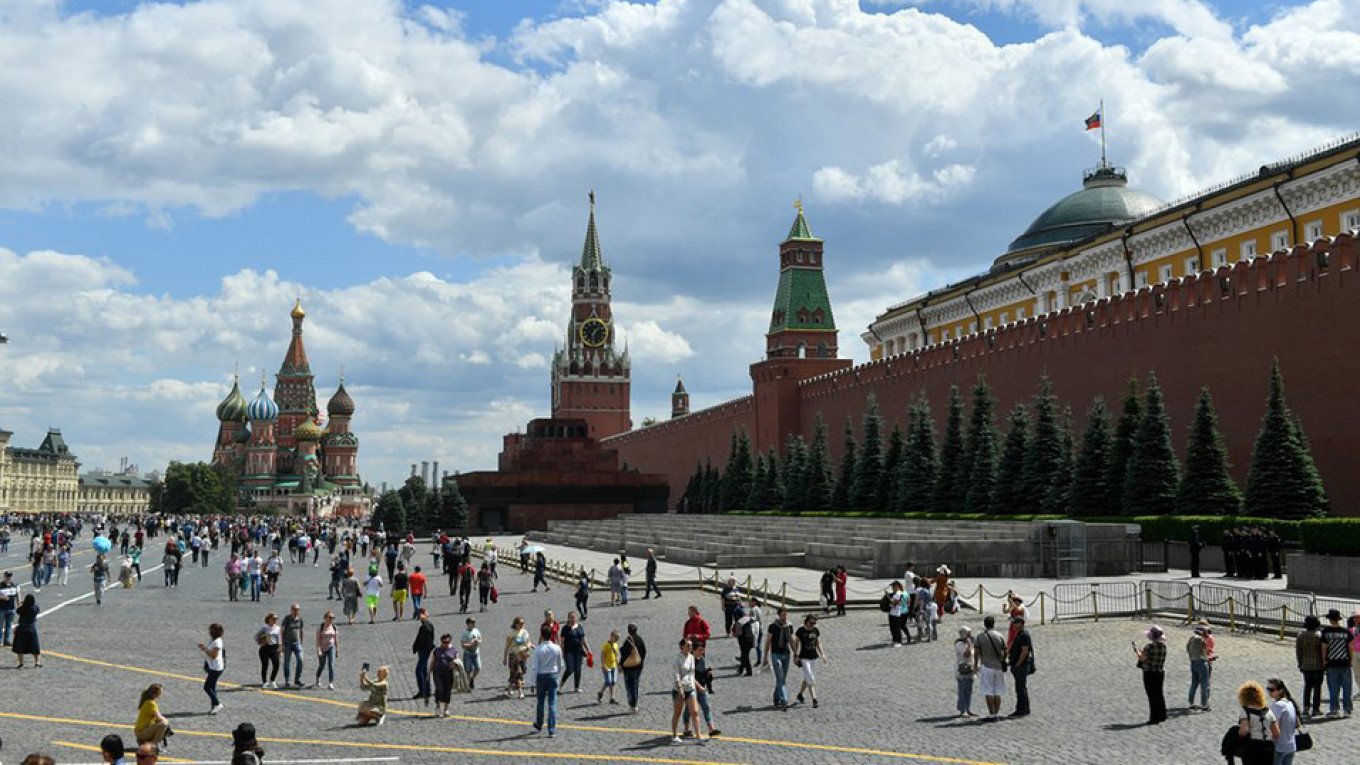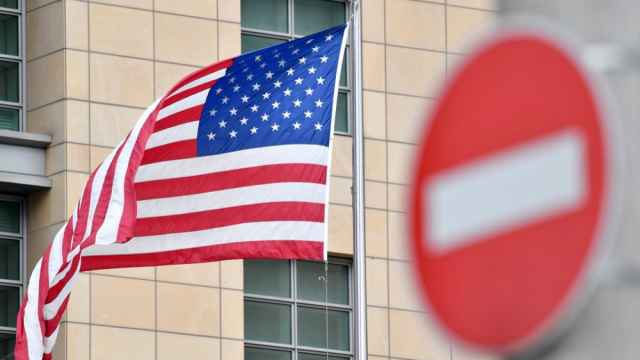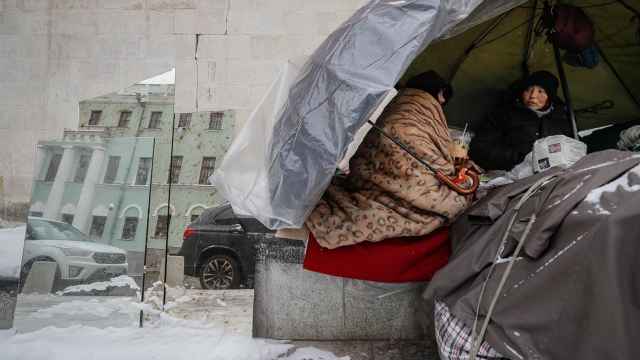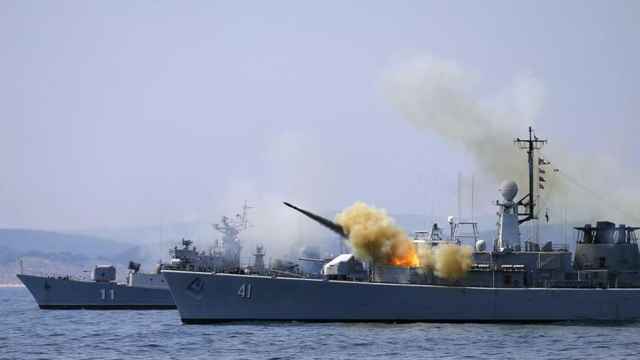Almost 80% of Russians believe that Russia and the West should become friends and partners, according to the results of an independent Levada Center poll published Tuesday.
Only 3% of Russian respondents said they see the West as Russia’s enemy, Levada said. Another 16% said they view the West as a rival.
Two-thirds of Levada’s respondents (67%) said Russia should treat the West as a “partner,” while 11% said Russia should treat the West as a “friend,” according to the Kommersant business daily’s breakdown of the data.
Russians view the European Union more favorably than the United States, with 49% expressing positive opinions toward the former and 42% toward the latter. Negative views of the EU and the U.S. were split among Russian respondents at 37% and 46%, respectively.
When asked about NATO, 61% of the respondents said its member countries should not fear Russia and 44% said that Russia should not fear NATO members.
Conversely, 35% of the respondents told Levada that members of the Western military bloc should fear Russia and 52% percent said Russia should fear NATO member states.
Levada sociologist Karina Pipia told Kommersant that the latest results point toward Russians’ “mass fatigue of foreign policy confrontation and an unwillingness to fight with anyone.”
Russia’s relations with the West plummeted to Cold War-era lows after Moscow annexed the Crimean peninsula from Ukraine and conflict broke out between Russian-backed rebels and Ukrainian government forces in 2014.
The Levada poll also showed an uptick in the share of Russian respondents who view China negatively since November 2019, from 18% to 24%. The share of Russians who view China positively declined from 72% to 65% in what sociologists linked to coronavirus fears.
Levada conducted the survey among 1,603 respondents in 50 Russian regions on Jan. 23-29.
A Message from The Moscow Times:
Dear readers,
We are facing unprecedented challenges. Russia's Prosecutor General's Office has designated The Moscow Times as an "undesirable" organization, criminalizing our work and putting our staff at risk of prosecution. This follows our earlier unjust labeling as a "foreign agent."
These actions are direct attempts to silence independent journalism in Russia. The authorities claim our work "discredits the decisions of the Russian leadership." We see things differently: we strive to provide accurate, unbiased reporting on Russia.
We, the journalists of The Moscow Times, refuse to be silenced. But to continue our work, we need your help.
Your support, no matter how small, makes a world of difference. If you can, please support us monthly starting from just $2. It's quick to set up, and every contribution makes a significant impact.
By supporting The Moscow Times, you're defending open, independent journalism in the face of repression. Thank you for standing with us.
Remind me later.






